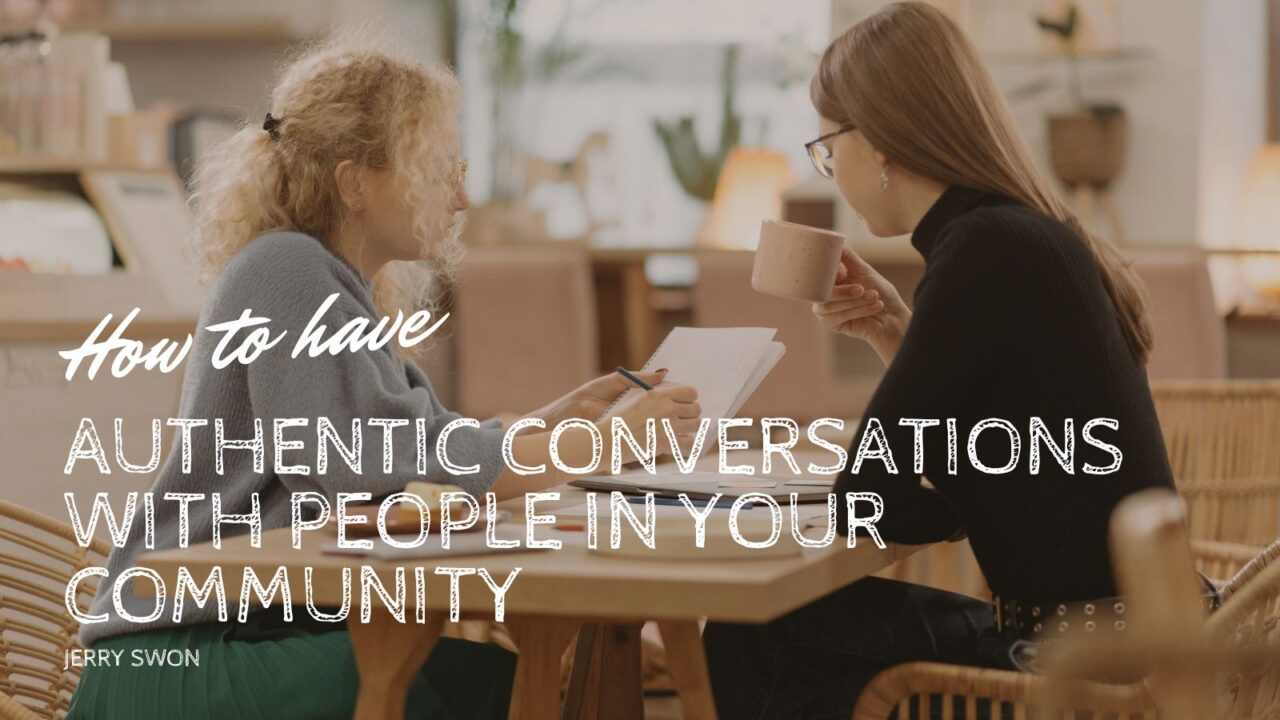One effective way of building community relationships is by engaging in authentic conversations beyond small talk and surface-level interactions. Authentic discussions can help you establish trust, empathy, and understanding with those around you, creating more meaningful connections and opportunities.
To have authentic conversations with people in your community, here are some tips:
Listen actively: When conversing with someone, give them your full attention. Avoid distractions, focus on what the other person is saying, and try comprehending their perspective. Active listening involves hearing the words being spoken and understanding the underlying emotions and intentions behind them.
Ask open-ended questions: Open-ended questions are an excellent way to encourage others to share more about themselves. They can also help you gain more insight and understanding into their thoughts and feelings. Instead of asking close-ended questions, ask questions that invite the other person to elaborate.
Share your own experiences: When appropriate, share your experiences and perspectives. This can help build trust and create a more equal exchange of information. Don’t dominate the conversation or make it all about you. The goal is to create a balanced dialogue that allows both parties to share and learn from each other.
Be honest and vulnerable: Authentic conversations require a level of vulnerability. Share thoughts and feelings, and be open to hearing others’ perspectives. This can help create a safe space for deeper conversations to take place. However, it’s essential to be mindful of the other person’s comfort level and not push them to share more than they’re comfortable with.
Avoid judgment: Avoid approaching conversations with an open mind, avoiding making assumptions or judgments about others. Everyone has unique experiences and perspectives; respecting and understanding these differences is essential. Be curious and ask questions to understand the other person’s perspective.
Practice active empathy: Active empathy involves putting yourself in the other person’s shoes and understanding their perspective. This can help you connect with them more profoundly and build empathy, which is critical for building meaningful relationships in personal and professional settings.
Respect boundaries: It’s crucial to respect others’ boundaries and not pressure them to share more than they’re comfortable with. If someone wants to avoid discussing a specific topic, don’t force them. Creating a safe and respectful environment is critical to fostering authentic conversations.
Engaging in authentic conversations with people in your community can help you build stronger relationships and create more meaningful connections. By actively listening, asking open-ended questions, sharing your experiences, being honest and vulnerable, avoiding judgment, practicing active empathy, and respecting boundaries, you can create a safe and respectful environment for deeper conversations. Authentic conversations require time and effort, but they’re worth it.
